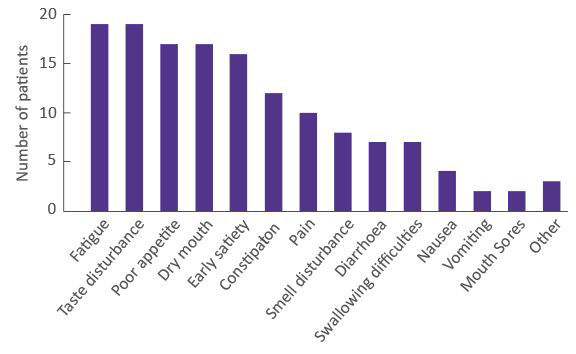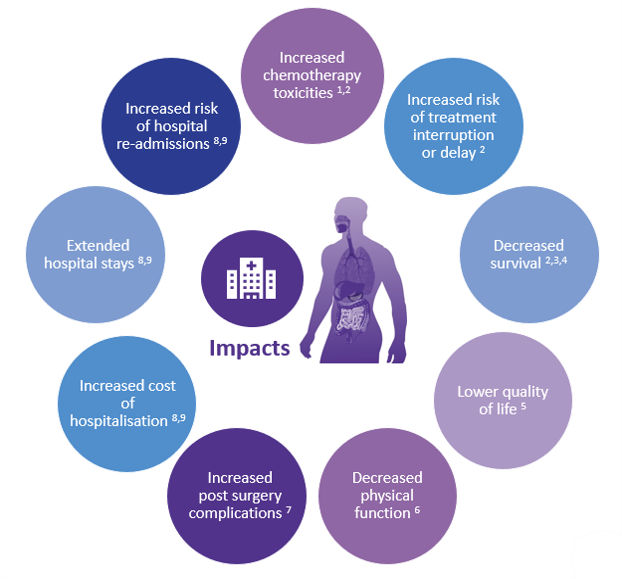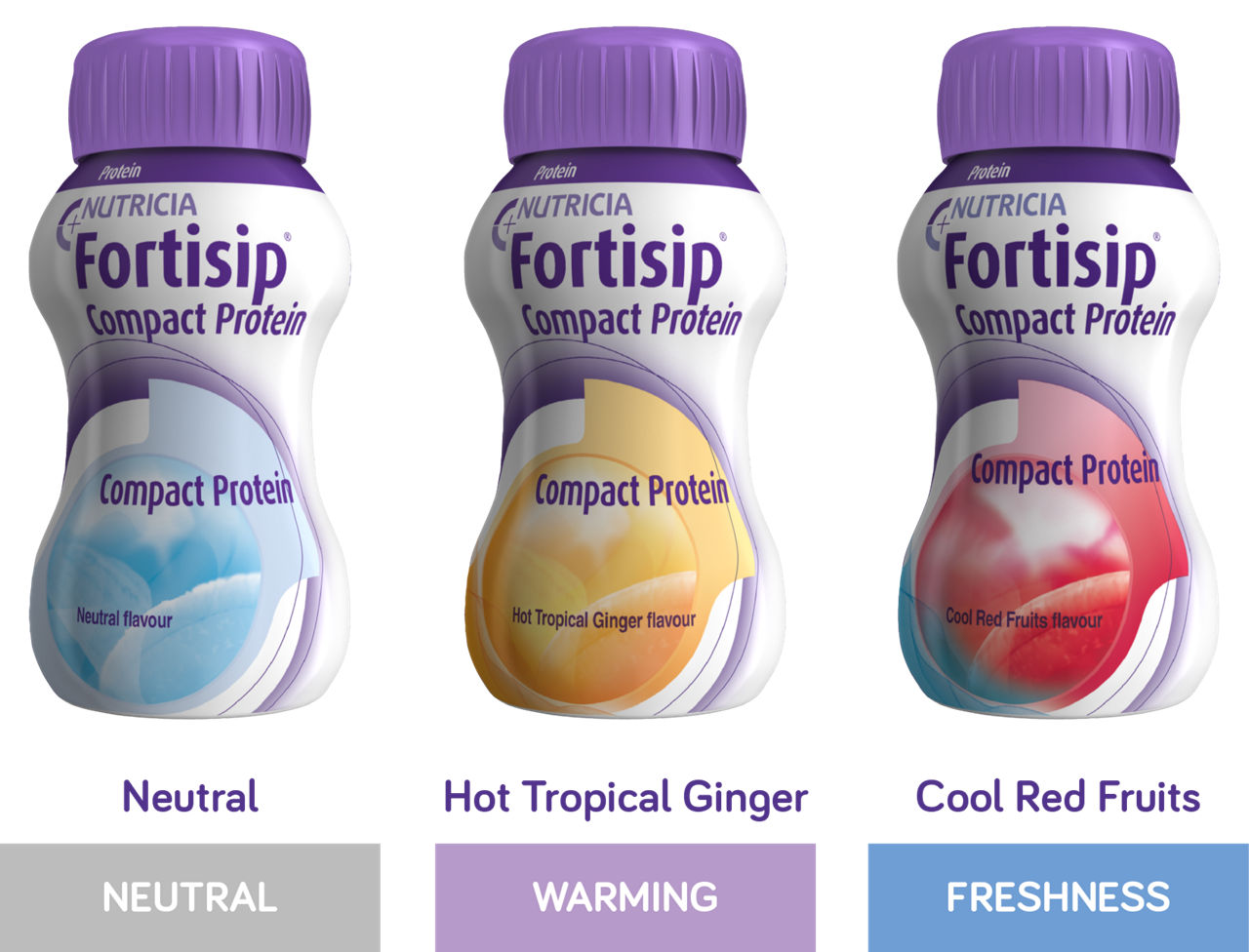Prevalence of malnutrition in Oncology
Cancer is a complex disease with patients becoming at high risk of malnutrition both as a consequence of their illness and its treatment1. Over 50% of cancer patients present with weight loss at diagnosis and, for many patients, nutritional status continues to deteriorate during and after treatment.2,3

Up to 80% of all cancer patients will be malnourished.4
What causes weight loss and malnutrition in cancer patients?
Cancer and the effect of treatment can impact the nutritional status of patients which can lead to cancer related malnutrition and poorer outcomes5 if not addressed. Cancer related malnutrition is driven by a combined effect of reduced nutritional intake and metabolic changes. These factors contribute to negative energy and protein balance leading to weight and muscle mass loss.1
The causes of reduced nutritional intake are complex and multifactorial.5

Taste and smell alterations may develop throughout the course of the disease, before, during and up to one year after treatment.5
Taste alterations could lead to a reduced intake of food and therefore have a negative impact on the nutritional status with up to 25% reduction in nutritional intake, leading to greater weight loss.2,6
Protein requirements can increase by up to double the standard recommended intake for a cancer patients
ESPEN guidelines on nutrition in cancer patients recommend an increased protein intake in cancer patients.5,8

Poor nutritional status in cancer patients are linked to poorer outcomes
Poor nutritional status in addition to weight and muscle mass loss can lead to poorer outcomes for the patient. Clinically this impacts not only the patient but also the health care setting in a number of ways.

The importance of good nutrition in cancer patients
Poor nutritional status in cancer patients are linked to poorer outcomes
Our newsletter
Sign up to the free Nutrition in Oncology newsletter to receive information on upcoming training and events, scientific knowledge and product news. Tick the Oncology area of interest within your profile.
Read next
- Arends, et al. Clin Nutr. 2017;36(5):1187-1196.
- Brisbois et al. J Pain Symptom Manage. 2011;41(4):673-683.
- Stratton RJ et al. Disease-related malnutrition: an evidence based approach to treatment. Wallingford: CABI Publishing; 2003.
- Ravosco, et al. J Clin Med. 2019;8:1211.
- Arends et al. Clin Nutr. 2016;36(1):11-48
- Spotten et al. Ann Oncol. 2017;28(5):969-984
- Brisbois et al. J Pain Symptom Manage. 2011;41(4):673-683.
- Muscaritoli, Arends, Bachmann et al. Clin Nutr. 2021; 40: 2898-2913
- Gandy et al. Blackwell Publishing, 2014
- Barret, et al. Oncology. 2011;81(5-6):395-402.
- Ross et al. Br J Cancer. 2004;90(10):1905-1911
- Martin et al. J Clin Oncol. 2015;33(1):90-99.
- Gannavarapu et al. J Oncol Pract. 2018;14(4):e238-e250.
- Sánchez-Lara, al. Nutr Cancer. 2012;64(4):526-534.
- Mariani et al. Support Care Cancer. 2012;20(2):301-309.
- Yu et al. Eur J Clin Nutr. 2013;67(7):732-737.
- Planas et al. Support Care Cancer. 2016;24(1):429-435.
- Gourin et al. Ann Otol Rhinol Laryngol. 2014;123(2):101-110.




